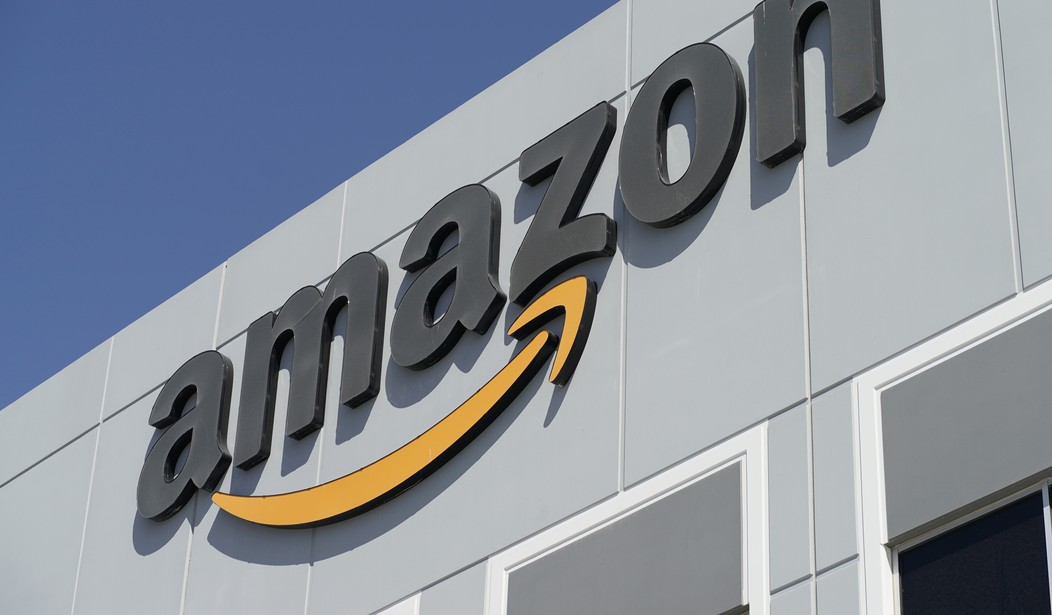The National Labor Relations Board issued a salvo against free speech in October. Oddly, the speech the NLRB is questioning is OK by the standards of its own website, not to mention the law. It is also information that workers facing a decision about unionization have every right to hear.
According to a complaint by the increasingly union-tilted NLRB, on April 14, Andy Jassy, CEO of Amazon, “provided an interview to Andrew Ross Sorkin of CNBC’s Squawk Box, wherein Jassy stated that, if employees were represented by a union: (a) employees would be less empowered in the workplace; (b) it would be more difficult for employees to have direct relationships with management; and (c) things would be done less quickly and more bureaucratically.”
That is not a direct quote. The NLRB chose to summarize the comments instead of using his actual words. That may be because the words themselves are entirely reasonable.
Jassy’s response to Sorkin was that it is Amazon employees’ “choice whether or not they want to join a union. We happen to think they’re better off not doing so for a couple of reasons at least.”
Jassy continued, “You know, first, at a place like Amazon that empowers employees, if they see something they can do better for customers or for themselves, they can go meet in a room, decide how change it and change it. That type of empowerment doesn’t happen when you have unions.”
He finished by saying that the rules that govern a unionized workforce make things “much more bureaucratic. It’s much slower. I also think people are better off having direct connections with their managers.”
Recommended
NLRB summarizes another media interview Jassy did with Bloomberg in the complaint.
Here is the direct quote from that article:
“It’s up to Amazon workers whether to join a union, Jassy said, echoing US labor law that codifies that right. ‘We happen to think they’re better off without a union,” he added, saying it’s easier for managers to get feedback from employees and for teams to make improvement on the fly under the current regime.
“‘We need to continue to provide the right benefits and we need to continue to work on safety, and that’s our intention,’ he said.”
Agree or disagree, Jassy’s statements do not exactly shock the conscience.
The NLRB’s own website states that employers may “[c]ommunicate your views about unions or a specific union to your employees, provided you make no threats or promises….Predict the precise affects you believe unionization will have on your company….”
And that’s what employers are allowed to say in Employer Meetings on Unionization, where they can insist on companywide attendance so long as they pay employees for the time. What Jassy did here wasn’t even remotely mandatory and wasn’t during a union election campaign, when extra NLRB scrutiny is typically applied to companies to curb any threats. Even if that was the case, however, it would still not run afoul of the NLRB’s guidelines.
He was talking to journalists, not directly to employees, but the NLRB simply did not like his answers.
The NLRB effort here is almost certainly going to lose on the merits, but the goal is to tag Amazon as a bad actor because the company believes its workers can do better without union representation.
In the effort to churn up negative publicity, the NLRB and the union have alreadywon. Amazon received a multitude of accusatory headlines, including: “Amazon CEO Andy Jassy violated labor laws with union remarks, federal agency alleges” in CNBC, and “NLRB alleges Amazon's Jassy violated labor law in interviews” in the Washington Post.
One wonders when the complaint is dismissed or found without merit if there will be as many headlines touting the company’s vindication. It’s probably better to not hold your breath on that one.
In the end, the NLRB wants Amazon to take away the right of its workers to a private ballot in unionization elections and recognize the union through a settlement, which will make all the bad PR go away.
However, that does not appear to be what Amazon workers want. Amazon unionization efforts recently failed in Albany, NY in October. Workers said no by an almost 2 to 1 margin. In total, less than a quarter of all employees voted for representation by the Amazon Labor Union. Shortly after, the union withdrew its petition to try to organize a California warehouse. It also lost a second vote in Staten Island in May.
Amazon workers are clearly saying no to unionization. The NLRB and unions are responding by threatening a bedrock constitutional right of all Americans.
F. Vincent Vernuccio is President of Institute for the American Worker.

























Join the conversation as a VIP Member